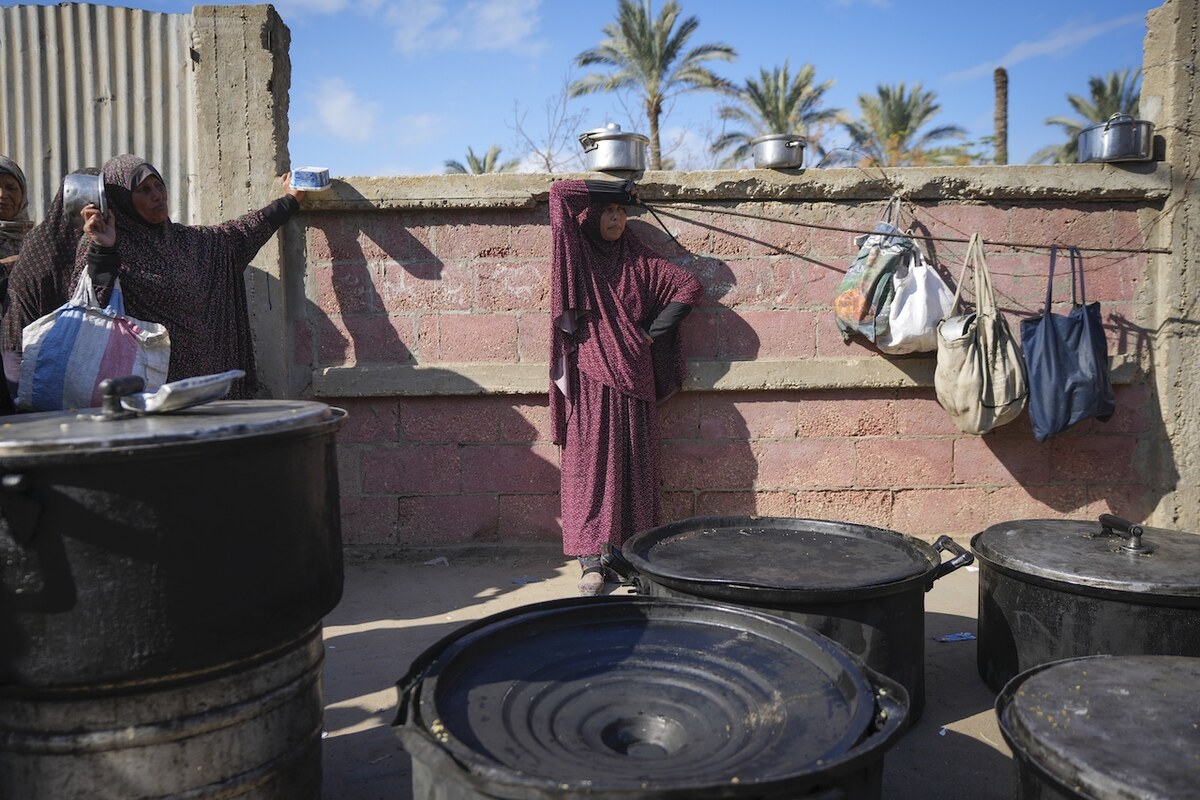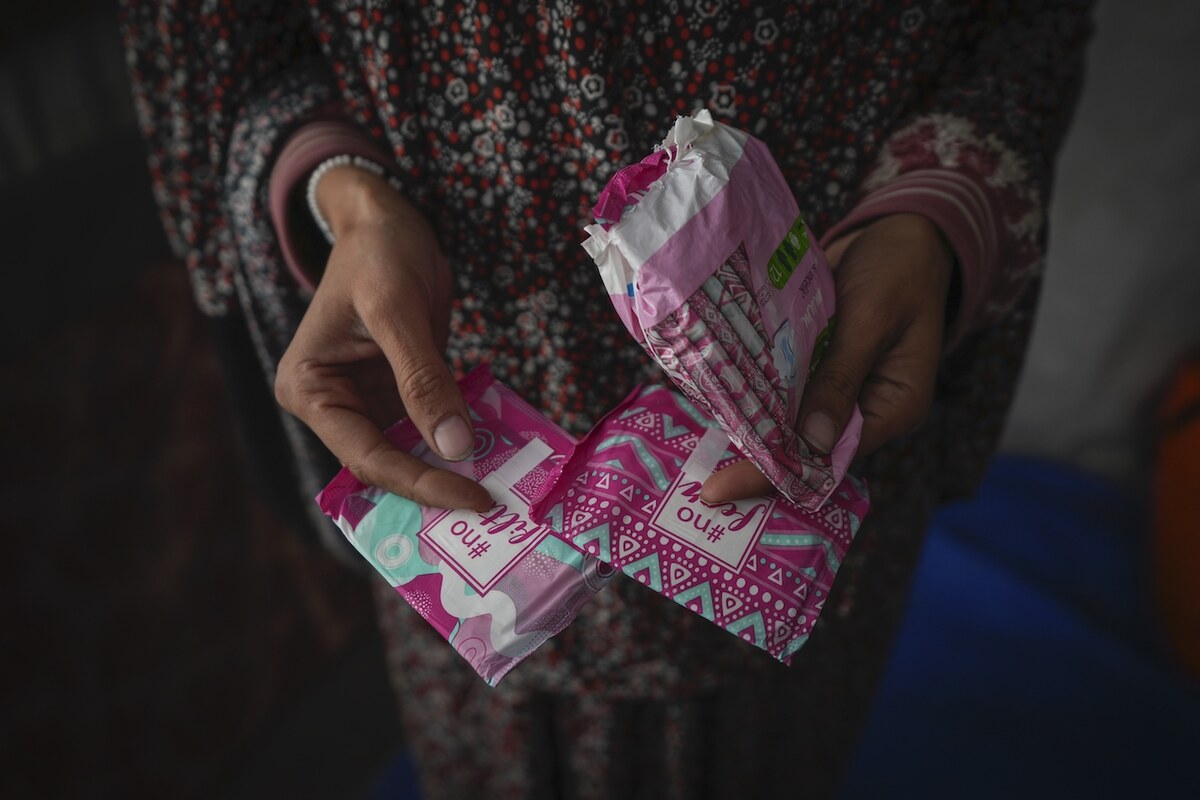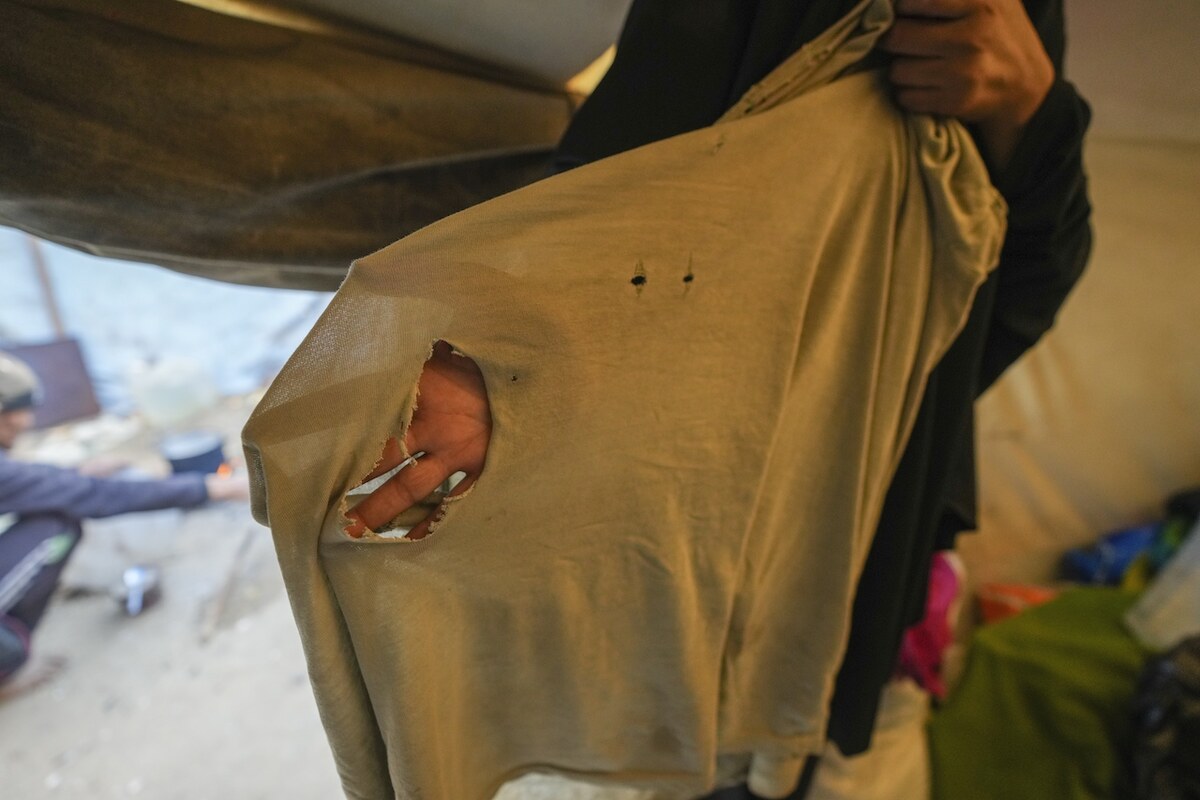GENEVA: The UN and other international aid organizations on Sunday decried the devastating toll of six months of war in Gaza, warning that the Palestinian territory had become “beyond catastrophic.”
“Six months is an awful milestone,” the International Federation of Red Cross and Red Crescent Societies (IFRC) said, warning that “humanity has been all but abandoned” in the severity of the conflict.
The Gaza war broke out on October 7 with an unprecedented attack by Hamas militants that resulted in the deaths of 1,170 people, mostly civilians, Israeli figures show.
The militants also took more than 250 hostages — 129 of whom remain in Gaza, including 34 who the army says are dead.
Israel’s retaliatory offensive has killed at least 33,175 people in Gaza, mostly women and children, according to the health ministry in the Hamas-run territory.
World Health Organization chief Tedros Adhanom Ghebreyesus made a new condemnation of the “barbaric act of violence” that unleashed the war, and demanded “the release of remaining hostages.”
But, he stressed that “this atrocity does not justify the horrific ongoing bombardment, siege and health system demolition by Israel in Gaza, killing, injuring and starving hundreds of thousands of civilians, including aid workers.
“The denial of basic needs — food, fuel, sanitation, shelter, security and health care — is inhumane and intolerable,” he wrote on X.
Of Gaza’s 36 main hospitals, only 10 remain even partially functional, according to the WHO.
Tedros voiced particular outrage at “the deaths and grievous injuries of thousands of children in Gaza,” which he said would “remain a stain on all of humanity.”
“This assault on present and future generations must end.”
Philippe Lazzarini, head of the UN agency supporting Palestinian refugees known as UNRWA, said the “hellhole in Gaza is deepening by the day.”
“All lines — including the red lines — were crossed. This war is made far worse through technologies mis-used by humans to harm other humans; en-masse,” he said on X.
“It is made worse by the famine born from an Israeli-imposed siege, one would think it’s from a different era. As a result, a man-made famine is eating up bodies of babies and young children,” Lazzarini added.
UNICEF chief Catherine Russell said more than 13,000 children have reportedly died.
“Homes, schools and hospitals in ruin. Teachers, doctors and humanitarians killed. Famine is imminent,” she said on X on Saturday.
The UN humanitarian chief Martin Griffiths insisted Saturday that there needed to be “a reckoning for this betrayal of humanity.”
IFRC Secretary-General Jagan Chapagain described the situation as “beyond catastrophic” and warned “millions of lives are at risk of hunger.”
The organization announced Sunday that another Palestinian Red Crescent Society (PRCS) employee had been killed in Gaza.
The body of Mohammad Maher Khalil Abed was found on Sunday, but he was killed during the evacuation of the Al-Amal hospital in the southern city of Khan Yunis on March 24, it said.
Sixteen PRCS staff and volunteers have now been killed since October 7.
Three staff and volunteers from Israel’s Magen David Adom (MDA) have also been killed.
For the International Committee of the Red Cross (ICRC), the caretaker of the Geneva Conventions, “a steady flow of humanitarian aid” into Gaza was vital, but it was “only part of the solution.”
“Both sides must conduct their military operations in a way that spares civilians caught in the middle,” it said on X.
Tedros pointed out that over 70 percent of those who have died in Gaza have been women and children. “We urge all parties to silence their guns. We appeal for peace. Now.”
Aid agencies decry ‘shocking’ toll six months into Gaza war
https://arab.news/5uc3n
Aid agencies decry ‘shocking’ toll six months into Gaza war

- WHO chief renews ‘barbaric act of violence’ that unleashed the war, and demands ‘the release of remaining hostages’
































